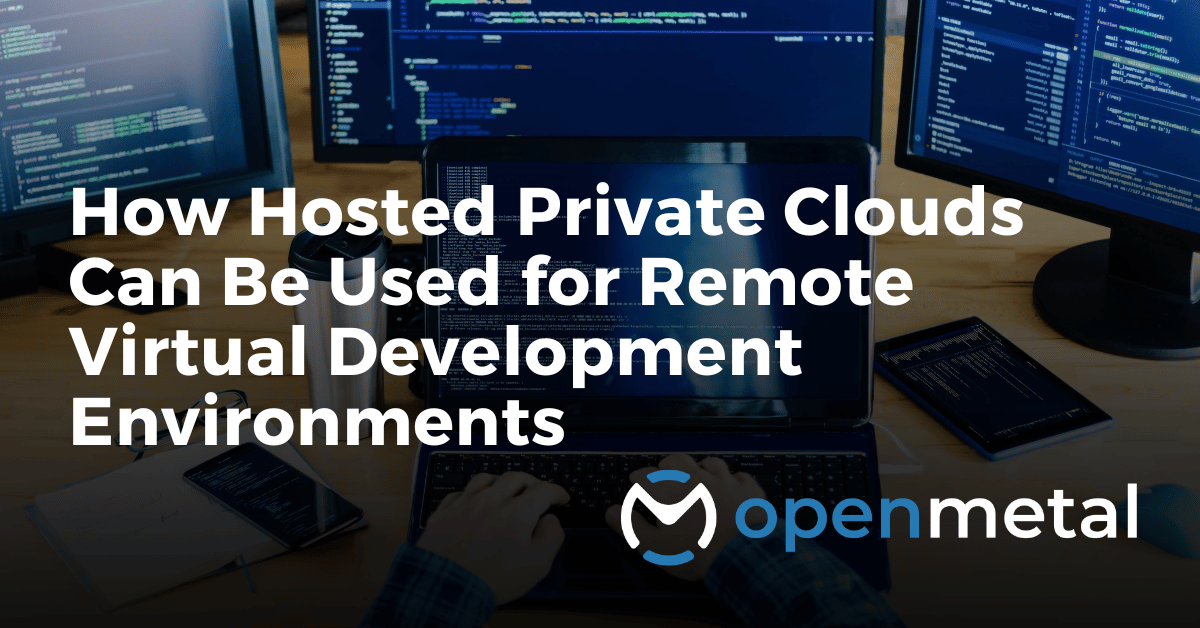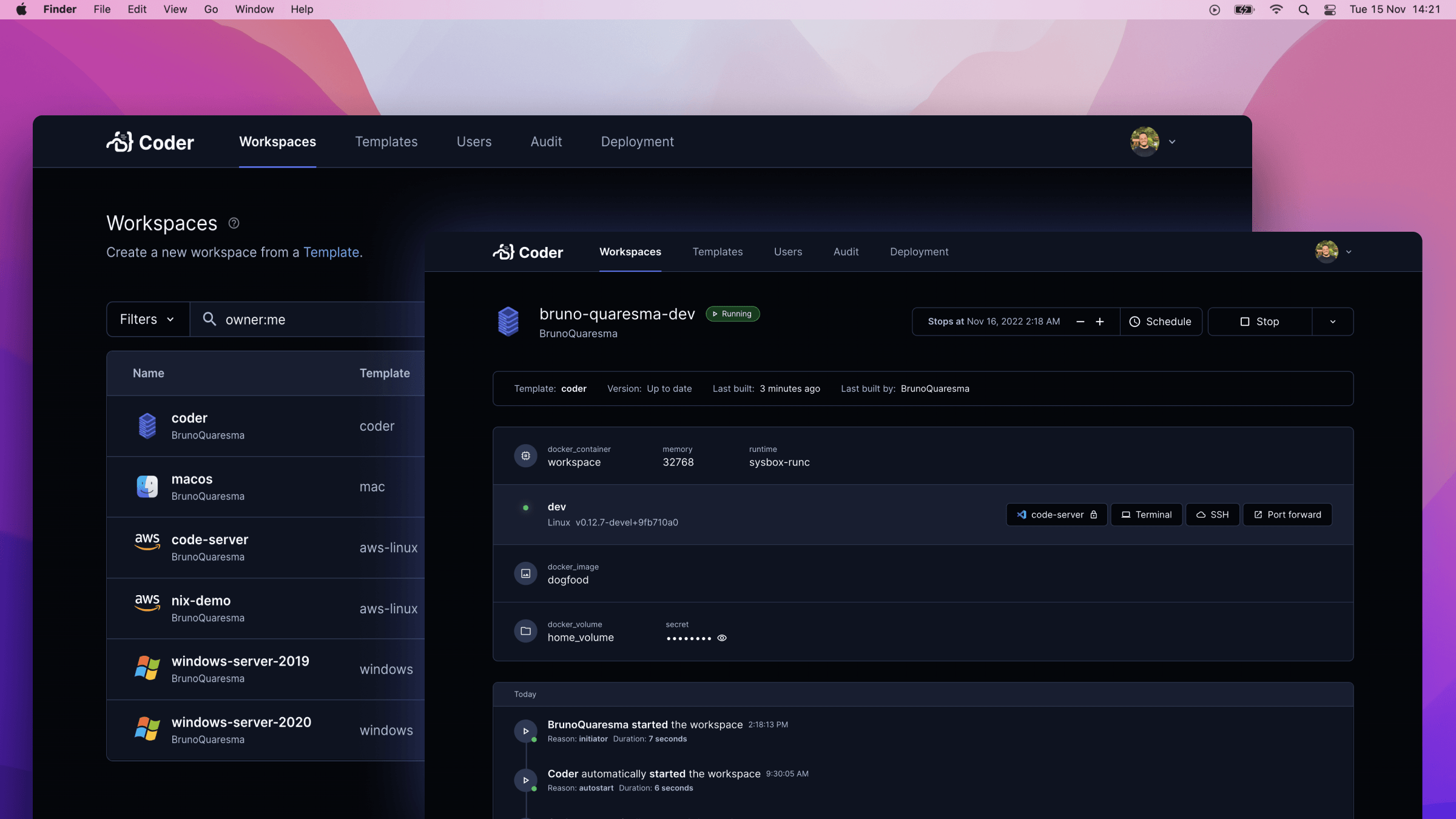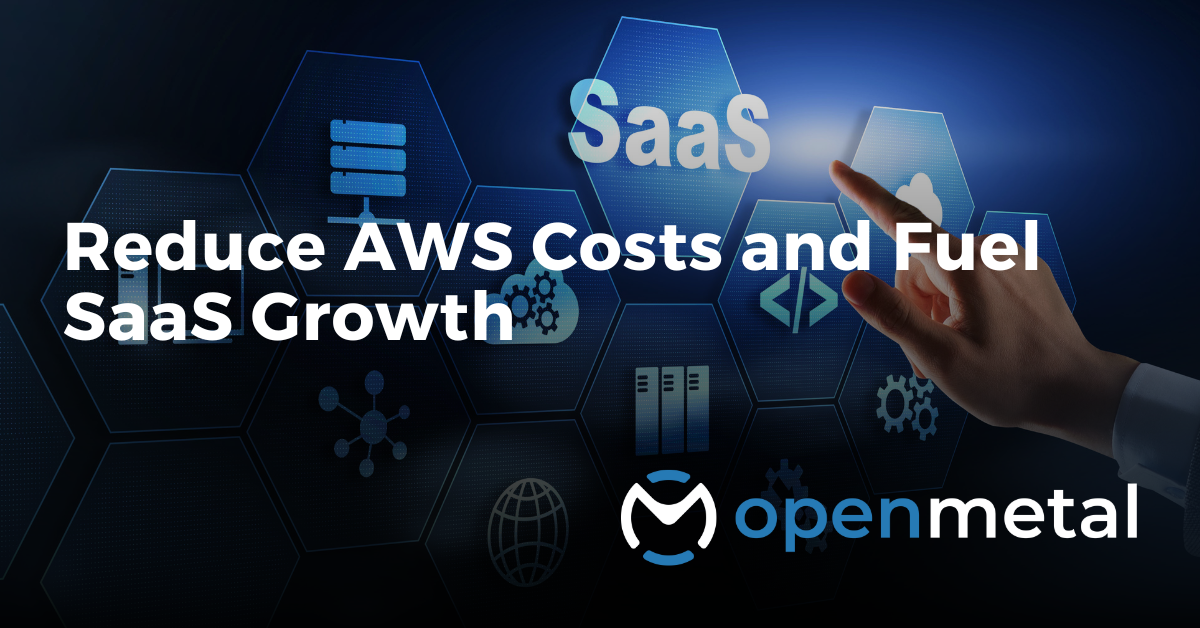
In this article
Remote development environments have become increasingly popular as businesses embrace remote work and distributed teams. These environments allow developers to work from anywhere on any device, accessing a consistent development environment that mirrors their local setup.
However, it’s important to choose the right cloud deployment method to host your remote development environment. Otherwise you may find you’re trading one set of problems for another.
In this blog post, we’ll talk about some advantages of virtualized environments for remote development teams, explore how hosted private clouds are a great match for virtualized development, and explore a real-world case study.
Why Use a Remote Virtual Development Environment?
Remote virtual development environments offer a range of benefits for modern development teams, including increased flexibility, improved security, and faster onboarding.
Code From Anywhere and Keep Things Consistent
Developers can work securely from any location with any device, reducing hardware costs and enabling more flexible “bring your own device” policies. Centralized, consistent virtualized environments allow everyone to work with the same set of tools and resources, eliminating the common “it works on my machine” problem.
Improve Security
Centralized workspace management enables tighter security controls and easier auditing. Standardized updates and patches help maintain security compliance. Source code is kept within the company’s cloud, minimizing exposure risks and individual responsibility.
Speed Up Onboarding
Pre-configured workspaces allow new developers to start coding right away. Consistent configurations across the team reduce environment drift, streamlining troubleshooting and support.
Hosted Private Cloud for Virtual Development Environments
Choosing the right cloud platform for your virtual development environment is crucial for optimal performance, security, and cost-effectiveness. Hosted private clouds can provide significant benefits over traditional on-premises setups or public cloud. So what are the main advantages of using a hosted private cloud for your remote development environment?
Cost Savings
One of the primary advantages of using a private cloud is cost-effectiveness. With a pay-as-you-go model, you only pay for the resources you actually use, eliminating the overhead of maintaining expensive on-premises hardware. OpenMetal’s competitive pricing ensures you get maximum value for your investment.
Optimized Resource Allocation and Scalability
Private clouds provide granular control over your resources, unlike public clouds where resources are shared. This means dedicated resources for your development needs, leading to improved performance and stability. Whether you need to handle a sudden in traffic or accommodate a new development team, private clouds can scale up or down seamlessly, ensuring optimal performance and cost efficiency. With OpenMetal’s flexible scaling options, you can avoid the costly overprovisioning of resources while maintaining the capacity to handle peak demand.
Enhanced Security
Private clouds offer a more secure environment by isolating your data from the public internet. OpenMetal goes further by providing a secure, compliant, and private infrastructure that meets stringent data protection standards. This allows you to develop and test in an environment that closely resembles your production setup without compromising security.
Compliance and Control
For industries subject to strict data protection regulations, private clouds offer a great solution. OpenMetal ensures that your infrastructure adheres to industry standards, while giving you control over compliance and governance.
Customization and Flexibility
Private clouds offer the flexibility to tailor your environment to your specific needs. Whether you require custom networking configurations, specialized hardware, or unique storage solutions, OpenMetal’s private cloud solutions can be customized to meet your exact requirements.
Case Study: How Coder Used OpenMetal’s Hosted Private Cloud powered by OpenStack for Their Remote Development Platform
Coder is a software development platform that provides cloud-based development environments. Their platform aims to streamline development processes by ensuring consistent environments for all team members, regardless of location or device. Coder emphasizes security, accessibility, and integration with popular development tools. By moving development environments to the cloud, they aim to improve collaboration, reduce bugs, and modernize the way software is developed.

Coder faced challenges when trying to implement OpenStack for their remote development platform. OpenMetal’s hosted private cloud provided solutions to these problems by offering:
- Automation and Process Optimization: OpenMetal eliminated the complexities of manual deployment, ensuring swift and straightforward setup.
- Flexible Configurations: OpenMetal addressed the constraints of ready-to-deploy distributions, providing customizable options and clear cost structures.
- Tailored Automation Tools: OpenMetal’s suite of automation tools ensured consistent compatibility across varying OpenStack releases.
OpenMetal provisioned Coder with our flagship standard private cloud configuration. It offers the flexibility to run up to 68 VMs, each with 4GB RAM and 2vCPUs – a setup tailor-made for developer workspaces managing light workloads. For developers tackling more intensive tasks, the system seamlessly scales to support 34 VMs, each with 8GB RAM and 4vCPUs.
Coder’s team even developed a Terraform playbook to integrate OpenStack into their broader ecosystem. This is designed to invoke resources within OpenStack, ensuring its smooth integration into the broader Coder ecosystem.
Coder’s hosted OpenStack private cloud is a valuable resource that mirrors and supports the diverse needs of their customers. It’s a solid platform for testing new features and assessing their effectiveness. The partnership with OpenMetal has exceeded expectations, prompting Coder to expand their use of OpenStack in various areas.
While you may be researching how to build your own remote virtual development environment from scratch, if you want to save time and headaches, get started with Coder’s fully supported and validated platform instead!
Wrapping Up – Test Drive a Hosted Private Cloud
Hosted private clouds offer a powerful solution for organizations looking to easily and quickly implement remote virtual development environments. By providing cost savings, enhanced security, and flexibility, private clouds are a perfect infrastructure solution for remote development teams.
If you’re exploring private clouds for your development team, take advantage of our free trials and PoCs to evaluate if OpenMetal’s IaaS platform is the right fit!
Read More on the OpenMetal Blog
OpenMetal Cloud Customer Success Story – Coder
OpenMetal partnered with Coder to offer the perfect solution for hosting and improving their cloud-based development platform. Learn about how our hosted OpenStack private cloud helped them improve flexibility, agility, cost control, and customization.
Private Cloud Advantages vs Public Cloud
A search on “public vs private cloud advantages” will nearly always include statements about public cloud being “less expensive” than alternatives. Unfortunately, the common narrative of public cloud being less expensive is simply not true for many situations!
How to Create a DevOps Culture In Your Workplace
If your organization is new to exploring the possibilities with DevOps, it may be a challenge to rethink and rework what you’re currently doing. So how can you effectively create a DevOps culture within your workplace, with as little time + money wasted as possible?






































